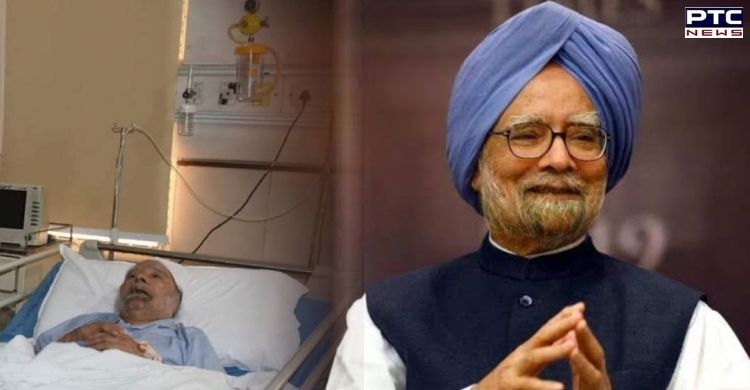
On December 26, 2024, India and the world bid a somber farewell to Dr. Manmohan Singh, an extraordinary economist, statesman, and the former Prime Minister of India. Born on September 26, 1932, in Gah, Punjab (now in Pakistan), Singh’s life was a testament to resilience, intellect, and unyielding dedication to public service. Over the course of his 92 years, he left an indelible mark on India’s economic landscape and global reputation, shaping policies and reforms that continue to influence the nation today.
Early Life and Academic Brilliance
Manmohan Singh’s journey began in the undivided Punjab region of British India. Born into a modest Sikh family, his early life was marked by personal tragedies, including the loss of his mother at a young age. Despite these challenges, Singh excelled academically, earning his bachelor’s and master’s degrees in Economics from Panjab University. His academic prowess took him to St. John’s College, Cambridge, where he completed his Economics Tripos in 1957. Later, at the University of Oxford, Singh’s doctoral thesis, titled “India’s Export Performance, 1951–1960: Export Prospects and Policy Implications,” laid the groundwork for his lifelong commitment to economic development.
A Bureaucrat Turned Reformer
Singh’s career began in academia, but his intellectual acumen soon caught the attention of policymakers. He served as Chief Economic Advisor, Governor of the Reserve Bank of India, and head of the Planning Commission during pivotal years in India’s economic history. However, it was his tenure as Finance Minister from 1991 to 1996 that cemented his legacy as a reformer. At a time when India faced a crippling economic crisis, Singh, under Prime Minister P. V. Narasimha Rao’s leadership, implemented structural reforms that liberalized the economy, opening it to global markets and fostering unprecedented growth.
The Prime Ministerial Years: 2004–2014
In 2004, destiny beckoned again as Sonia Gandhi, chairperson of the Indian National Congress, nominated Singh as India’s 14th Prime Minister. As the first Sikh to hold the office, Singh’s leadership was both historic and transformative. His tenure saw significant initiatives such as the National Rural Employment Guarantee Act (NREGA), the Right to Information Act, and the National Rural Health Mission, which sought to bridge socioeconomic gaps across the country.
One of Singh’s defining moments as Prime Minister came in 2008 with the Indo-U.S. Civil Nuclear Agreement. Despite facing intense political opposition, Singh’s unwavering commitment to the deal underscored his vision of India as a responsible nuclear power with access to advanced technology. During his first term, India’s GDP grew at an average annual rate of over 8%, bolstering its image as an emerging global economic powerhouse.
Challenges and Controversies
Singh’s second term, starting in 2009, was marked by challenges that tested his leadership and integrity. The government faced allegations of corruption in cases such as the 2G spectrum allocation and the Commonwealth Games scandal. Critics often portrayed him as a silent spectator, yet his admirers recognized his restraint and adherence to democratic norms amidst political turbulence. Despite these challenges, Singh remained a respected figure, admired for his humility and academic rigor.
Personal Life and Values
Dr. Singh was known for his simplicity and deeply held values. He shared a quiet yet profound partnership with his wife, Gursharan Kaur, and was a loving father to their three daughters. A devout Sikh, Singh’s faith was a guiding force in his life, shaping his ethical approach to governance and public service.
A Global Statesman
Manmohan Singh’s influence extended far beyond India. His economic expertise earned him global recognition, including prestigious awards such as the Padma Vibhushan (1987) and the World Statesman Award (2010). Under his leadership, India strengthened its relationships with major powers and emerging economies, playing a pivotal role in forums like the G20, BRICS, and the United Nations.
Remembering His Legacy
The passing of Dr. Singh is a moment of reflection on the transformative impact of his leadership. His life’s work—from spearheading economic reforms to fostering inclusive growth—is a blueprint for future generations. As tributes pour in from world leaders, economists, and citizens alike, one theme resonates: Manmohan Singh was a leader who led with intellect, integrity, and an unwavering commitment to India’s progress.
Prime Minister Narendra Modi expressed his condolences, calling Singh “a statesman whose contributions to India will be remembered for generations.” Former U.S. President Barack Obama also paid tribute, highlighting Singh’s role in strengthening India-U.S. relations.
Legacy and Tributes
Manmohan Singh’s passing in 2024 marked the end of an era in Indian politics and economics. Tributes poured in from across the globe, highlighting his pivotal role in liberalizing India’s economy and fostering international partnerships. In the same year, India mourned the loss of another towering figure, Ratan Tata, whose visionary leadership and philanthropy paralleled Singh’s enduring contributions to the nation’s growth and development. Together, their legacies symbolize a golden era of Indian progress and global influence.
Lessons from a Life Well-Lived
Manmohan Singh’s journey—from a partition refugee to a global statesman—embodies the resilience and potential of the human spirit. His dedication to public service, even in the face of immense challenges, serves as an inspiration. Singh once remarked, “History will be kinder to me than the contemporary media,” a statement that rings truer today as his contributions are viewed through the lens of time.
Conclusion
As India mourns the loss of one of its most distinguished leaders, the legacy of Dr. Manmohan Singh endures. He was more than an economist or a politician; he was a visionary who believed in the power of knowledge and policy to uplift society. His life reminds us that true leadership lies not in rhetoric but in action, not in power but in service. Dr. Singh’s contributions will continue to inspire and guide India on its path to progress, a fitting tribute to a man whose life was dedicated to the nation.
